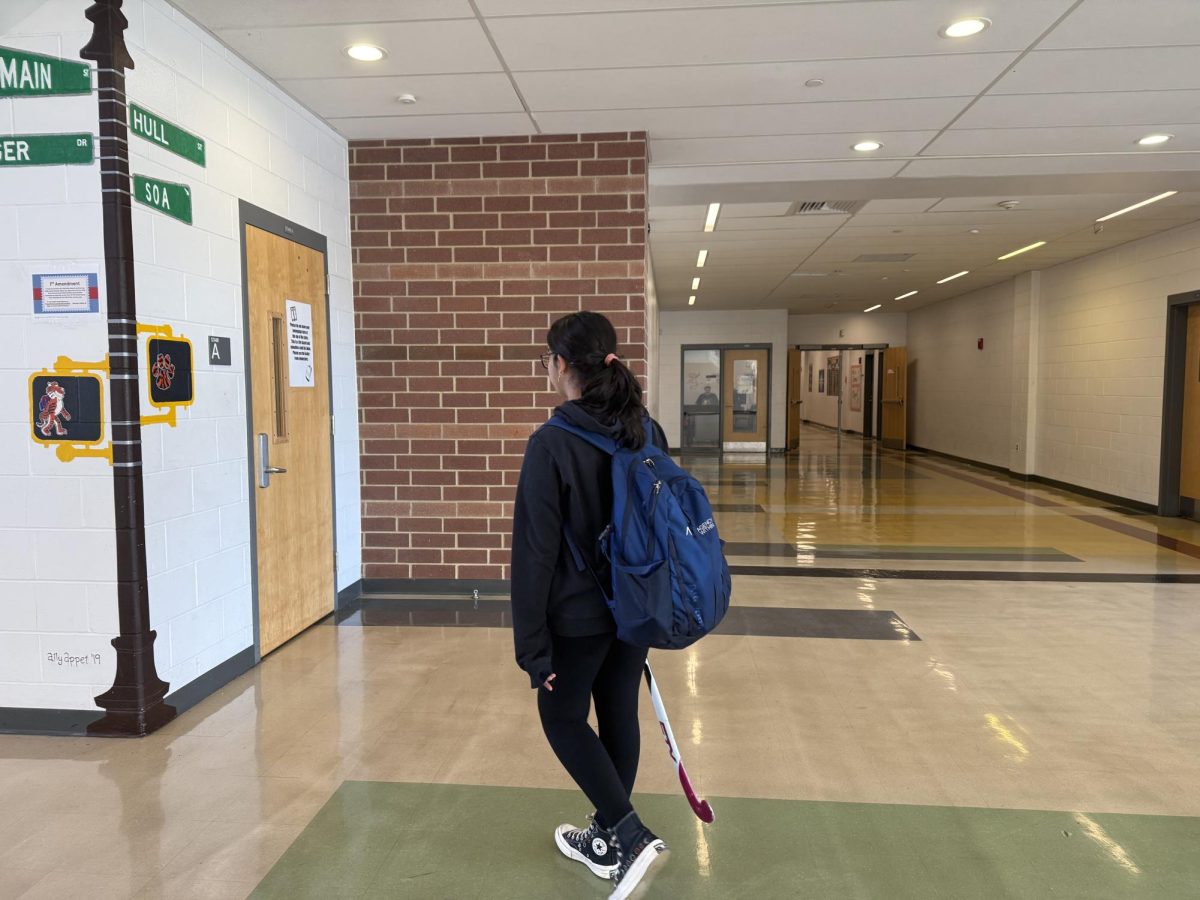by Alex Feit
With the “Occupy” protests spreading to thousands of cities and towns around the globe, a handful of students and teachers at this school feel inclined to take part in this now ubiquitous movement.
Clamoring for governments to address a wide variety of issues, including income inequality and an over-influence of money in politics, supporters of the movement have set up tent collectives within these various cities.
Students and youth around the world have become some of the largest backers of the movement.
Boston has its Occupy branch centered in Dewey Park, where hundreds of round-the-clock supporters spend their days in dozens of makeshift tents to spread the message of the “99 percent,” those not in the top one percent of income earners.
“I love that people have decided to be proactive,” said sophomore Amelia Williams, who recently went to the Boston protest. “Although there really isn’t one unifying cause, I still think it is pretty awesome to see people fighting for something they care about,” she said.
Williams said the protests are appealing “because there is a sense of community—how we are the 99 percent, ultimately fighting for democracy.”
Even in wealthy suburbs such as Newton, where the 2010 United States Census states that the median income, at $105,000, is twice the national average, some still feel encouraged to lend a hand to the nascent movement.
While some students went to protest for a cause, others went out of curiosity.
“I went because I wanted to see firsthand what was actually going on there, since I had heard many different things about it,” said junior Jack Gardner.
Many students, regardless of whether they took part in the protest, have opinions on the issues involved.
“There’s no social justice in America,” said junior Jordan Ecker. “Because the politics of Washington are essentially controlled by who has money, rather than by the people, the Occupy protests are basically the only way to vent our dissatisfaction,” he added.
Teachers at this school have also stood behind the movement, which supports fair wages for public sector employees. “The political culture in Washington is so dysfunctional that anything that gets politicians focused on the needs of ordinary people is a positive thing,” said history teacher John Fitzgerald. “Many of the most important changes in society have occurred in protest movements.”
As with any protest, there is a level disagreement as to whether or not the movement is beneficial.
“I think the Occupy movement is protesting the wrong aspects of society,” said sophomore Riley Heiman. “Members are protesting the high echelons of our society, including corporations, when they should be protesting the government more for letting this poor economic situation happen.”
A few of the movement’s supporters criticized the perceived ignorance of some of the protesters.
Williams said, “It does bother me some people are there because it’s ‘cool,’ yet don’t know what they are supporting.”
Still, English teacher Peter Goddard, said that “because the protest is grass-roots, it can get a little messy—but that’s democracy.”
Categories:
‘Occupy’ protests provide student outlet
November 23, 2011
0
Donate to The Newtonite
More to Discover









































